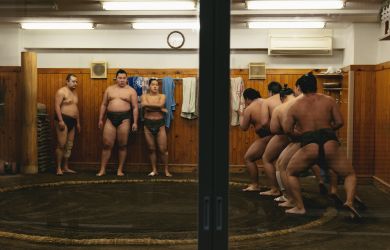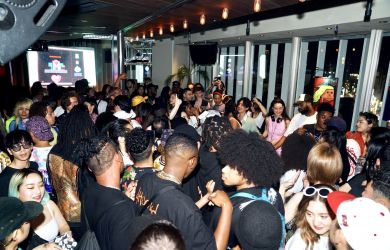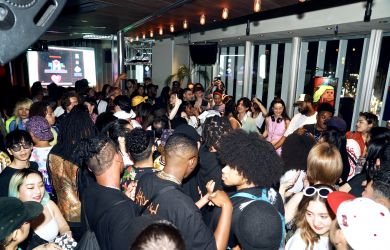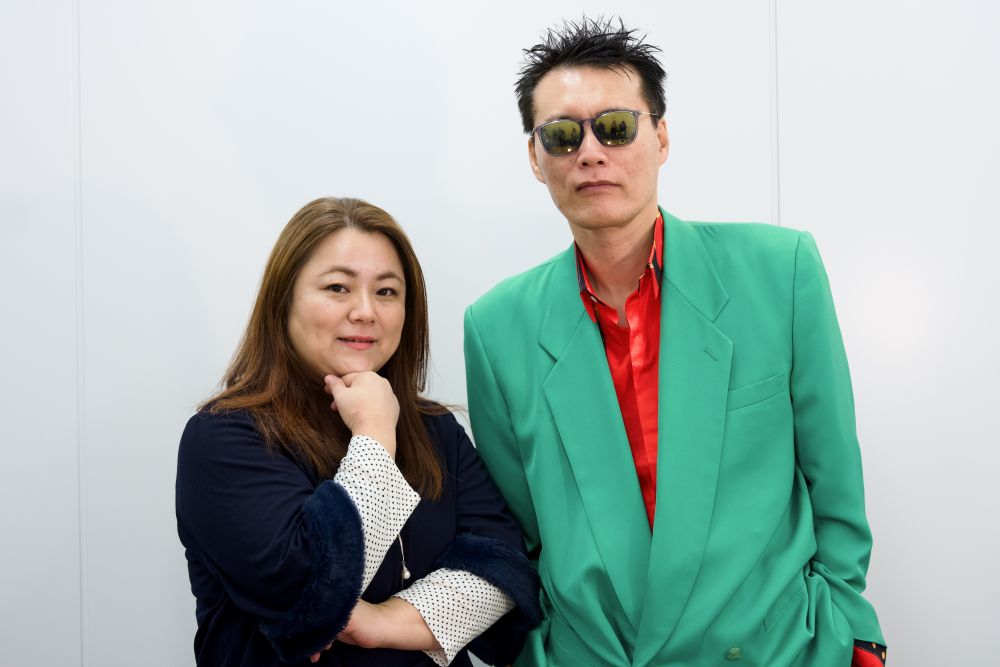
SIZUKU is one of the latest Japanese artists to show us all that music surpasses borders and language barriers.
Domestically, SIZUKU has seen great success in 2023. On July 2, the artist released the song “Angel in My Heart” through Warner Music Group ADA, earning radio play on the day of its release. Selected as the theme song for BS Fuji drama series “I Was an Idol, But I Became a Delivery Boy” by director Teranishi, the song, produced by SIZUKU’s producer, GOD, became the first to break YOASOBI’s long-running streak, securing the top spot in daily domestic single download rankings on the instant music platform “Rekochoku” as well as third place in weekly rankings and fifth place in monthly rankings.
The music video, available on Warner Music Japan’s official YouTube channel, garnered 230,000 views in less than five days. Additionally, both GOD and SIZUKU were featured in a 15-page color spread in the “Singing is Good” section of the Nikkan Sports newspaper.
Alone, she created a genre of music called Amazing Music which is neither rock, folk, or pop, and despite their Japanese lyrics, her songs are starting to attract attention abroad.
In addition to her ever-growing presence in the music industry, SIZUKU is attracting attention as an actor in major television dramas. Starring alongside Yuma Teranishi, the two form a buddy duo in the series “IF Metropolitan Police Department Investigative Division 1 Tsurugi Zenji” airing on commercial broadcaster BS Fuji TV from January 7, the artist is also set to make her Hollywood debut in 2024. Ahead of her international breakthrough, Metropolis sat down with SIZUKU and her producer, known as GOD, to hear about their story and what makes SIZUKU’s music different.
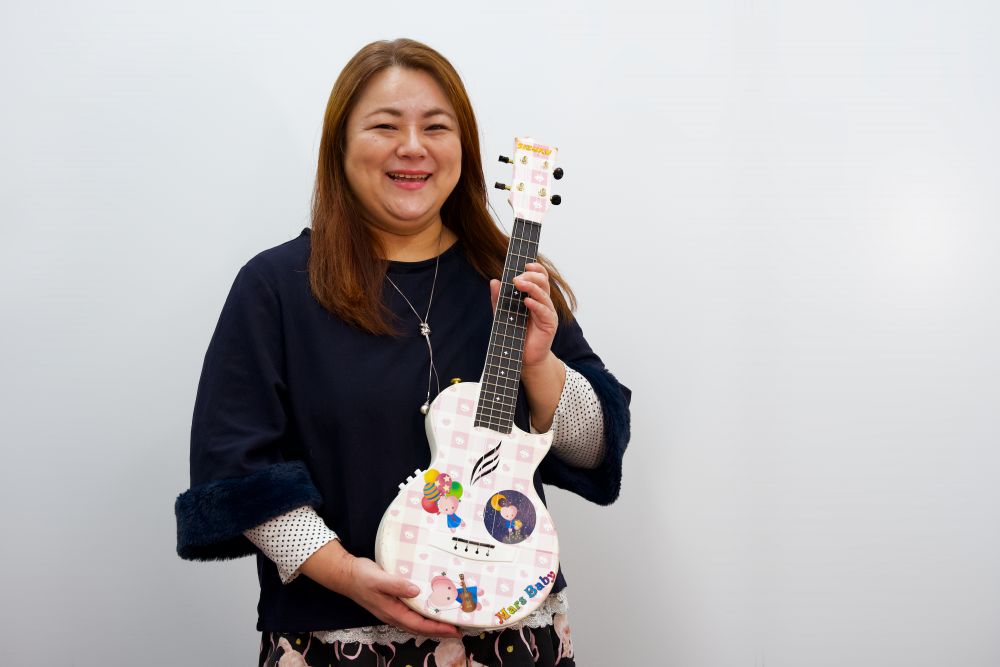
Metropolis: Let’s start with the name – how did you end up calling your company GOD World Entertainment?
GOD: Originally, I was a ghostwriter. I would write song lyrics and create characters and stories without publishing my name. I was always in the background.
Then, a top-tier producer told me that I was a “GOD Producer.” So, I was given the name “GOD Producer KAZUKI.” That was my name for a long time, so eventually people just started calling me “GOD.”
But I thought, if I’m being called “GOD,” then if I don’t do amazing things, I’m not living up to the name. To show that I could do that, I chose the name “GOD’s World Entertainment.”
M: When did you meet SIZUKU?
G: I met SIZUKU over 20 years ago, and immediately thought that her voice was extraordinary. I had her voice analyzed, and we found Theta waves. Then we had her voice analyzed again, and we found Gamma waves, too, which is very rare.
M: Do you make your songs together?
SIZUKU: GOD writes everything. The words and the tune come to him together, so he sings it and records it to create the song. I receive that in acapella form, and then, using the piano, I write it down on sheet music. I give it to an arranger, and we finish it up. Of course, he’s a man with a man’s voice, so I also arrange it into a key that’s easier for me to sing in, and run it by GOD before we get the final piece together.
Once the theme or topic has been decided, he can put things together very quickly. But the ideation beforehand can take a long time!
M: Did you formally study music at school?
S: I started taking singing lessons in high school, and continued at university in Osaka. I haven’t had J-pop voice training before, though. Some people have said it’s good to try out different styles, but GOD said not to do that. If you do that, you’ll end up with the same idiosyncrasies as your teacher. For example, I had some classical training, and it took a long time to get past some of the peculiarities I picked up from that. But if you then try to get rid of it by having another teacher, you might end up with their quirks instead.
So, now I mostly do self-study and practice. When I’m practicing different songs, I will alter my approach to fit that piece and receive some advice from GOD here and there.
I learned all the basics at university, so that gives me a solid foundation. Then I’ll sing and receive advice from GOD, and he’ll mostly say things like “Try singing it with this feeling, or with this emotion behind it.” And just from that one piece of advice, my song completely changed. It’s so helpful.
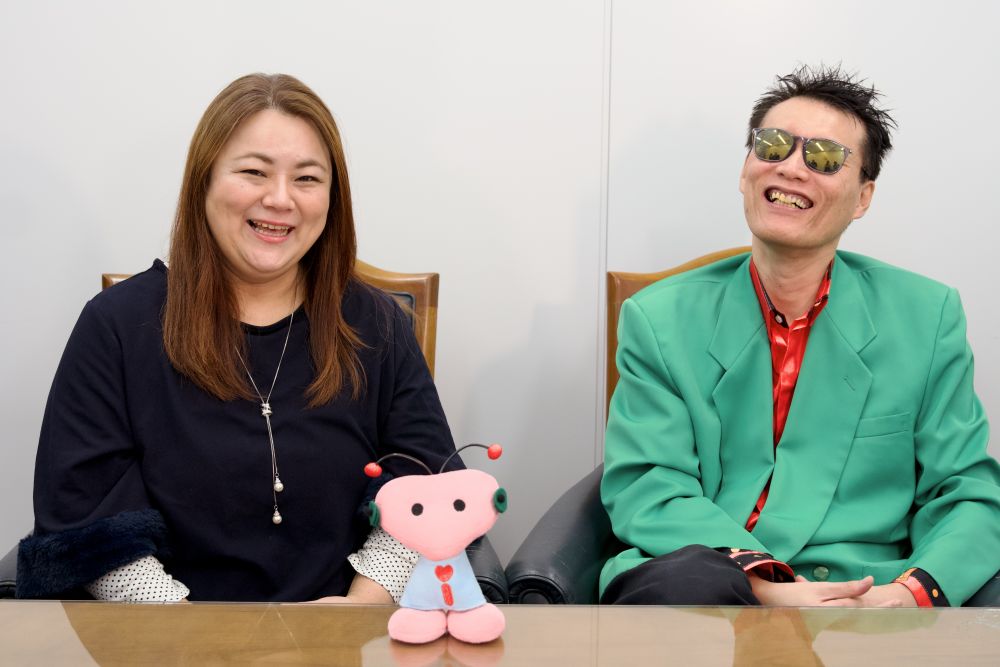
M: Could you tell us a bit more about how you came to work at GOD World Entertainment?
S: In Japan, the music industry is full of women. Especially vocalists and pianists, I’d say over 90% are women. It’s very competitive, and I’m not very good at putting on a fierce face.
At university, I didn’t stand out, so to be honest I got quite discouraged. Even though I wanted to get into music, I thought maybe it would be best to just start a regular job.
After graduating, I started a part-time job at a restaurant where I could also sing. I thought maybe I could continue with music in this way. That’s when GOD came to the restaurant as a customer and noticed me singing.
G: I came in and I heard her singing karaoke, and I asked her to sing something. What was it I requested?
S: Maya Okamoto’s “Tomorrow.” That was around 1997, wasn’t it?
G: Yes, over 20 years ago. I said from the start that she has unique vocal chords.
S: Then he asked, “Do you want to work in music?” and I said, “Of course!” So I started working with him, and he told me “Your voice is special, you should have confidence in yourself.”
When I started doing things like recording, a lot of people would tell me I wasn’t talented, and that I should stop, and it took a toll on my confidence. GOD told me that I shouldn’t worry, your time will come. It doesn’t matter what other people think.
When I released my CD, other people said my voice was great, too, and so different from other singers. After hearing such wonderful things from other people as well as GOD, things started to change.
G: Her success story is just like Flash Dance.
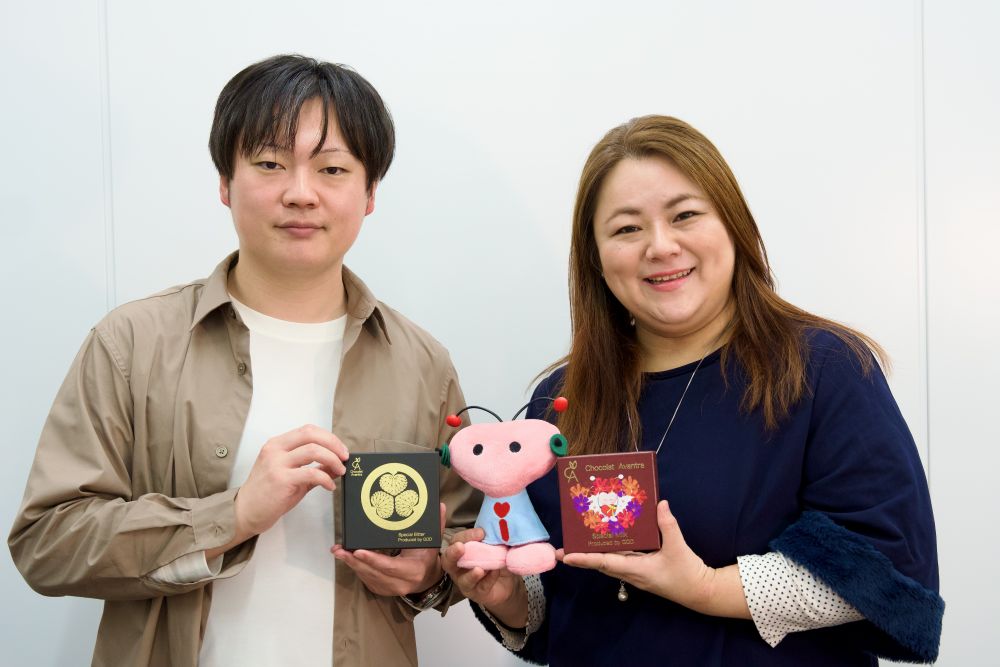
M: GOD mentioned your unique Gamma and Theta waves in your singing, do you think that affects how you perform?
A: For me, I wouldn’t say that I’m anything particularly different. When I sing, of course, I want it to be a hit, but more than that, I want to reach people’s hearts.
I want to hit on the feelings of the person who wrote the song, my feelings, and the feelings of the person who is listening. It’s touching when someone tells me a song was good, or if they say they feel healed or moved by it.
G: Her music has a healing effect on those who listen. My promoter friend said we should create a genre for her. So we thought about it, and came up with “Amazing Music.” We considered “Health Music” or “Healing Music,” but it didn’t hit right, so we settled on “Amazing Music.” This way it touches on good health, but also on having a better life by taking your happiness day by day.
M: For you, SIZUKU, the feeling is the most important part?
S: Yes. Before recording the final version, GOD always tells me to be careful. For example, if something hurtful happens to me beforehand, I can’t sing properly. So he always tells me to make sure I don’t do anything before a recording!
M: Do you think that you can still convey that feeling to listeners who don’t speak Japanese?
S: Music really surpasses the boundaries of words. I sang in New York once, and I couldn’t speak any English at all, so I even greeted everyone in Japanese, and sang completely in Japanese. But once I was done, everyone came up to me, and even though we couldn’t really communicate with each other properly, they all told me how much they enjoyed it! I was so touched. I realized that even with the language barrier, I was getting something across.
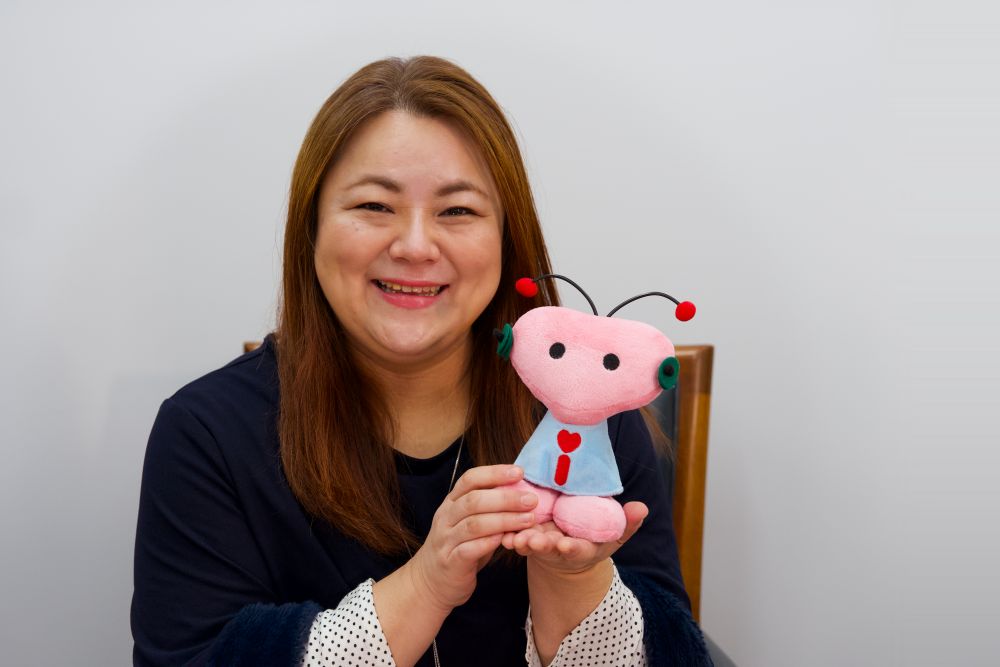
G: Even though no one spoke Japanese they were all telling her she had a beautiful voice. In that moment, something changed for her.
M: Why do you think your music has been popular abroad?
S: I think that Japanese people like to think about things logically, or in a more objective way, whereas I think there is a strong sense of emotion and the subjective in the West.
I value those feelings. I have likes and dislikes different to everyone else that I can’t always explain. I think there is an invisible link through emotion that has reached people abroad.
M: Do you want to continue to broaden your reach throughout the world?
S: Yes, I want to somehow contribute to society through music. Not just in Japan, but also across the world. I want to help people feel good. I think there is a lot of sadness in the world, so I want to reach as many hearts as possible and help towards their happiness. I think smiles create smiles, and I want to be a part of that chain of happiness.
M: You’ve also been doing some work with chocolate, can you tell us about that?
S: We formed a group of four managers, collectively known as “Gokuro San.” One of the managers, Mr. Kazuya Ito owns “Chocolat Avantra,” a luxury chocolate brand that uses Armand, a high-quality champagne. It comes in two variations, bitter and milk chocolate, and it sells for ¥5,000 for nine pieces. GOD and I have been collaborating with this company.
GOD has a connection with Tokugawa Ieyasu, a well-known historical figure in Japan. He was entrusted with the family crest and it became the design for the bitter chocolate. The design for the milk chocolate is “Mars Baby,” a baby Martian that GOD and I designed together.
After Christmas and New Year’s, Valentine’s Day will soon arrive in Japan, so I’ve created a new song for this chocolate called “Memorial Valentine.”
M: Finally, please tell us about the film you’re working on.
G: GOD World Entertainment is set to produce “Revolutionary Morning,” a film about the former President of South Korea, Park Chung-hee. We officially announced the commencement of production during a press conference on December 2023.
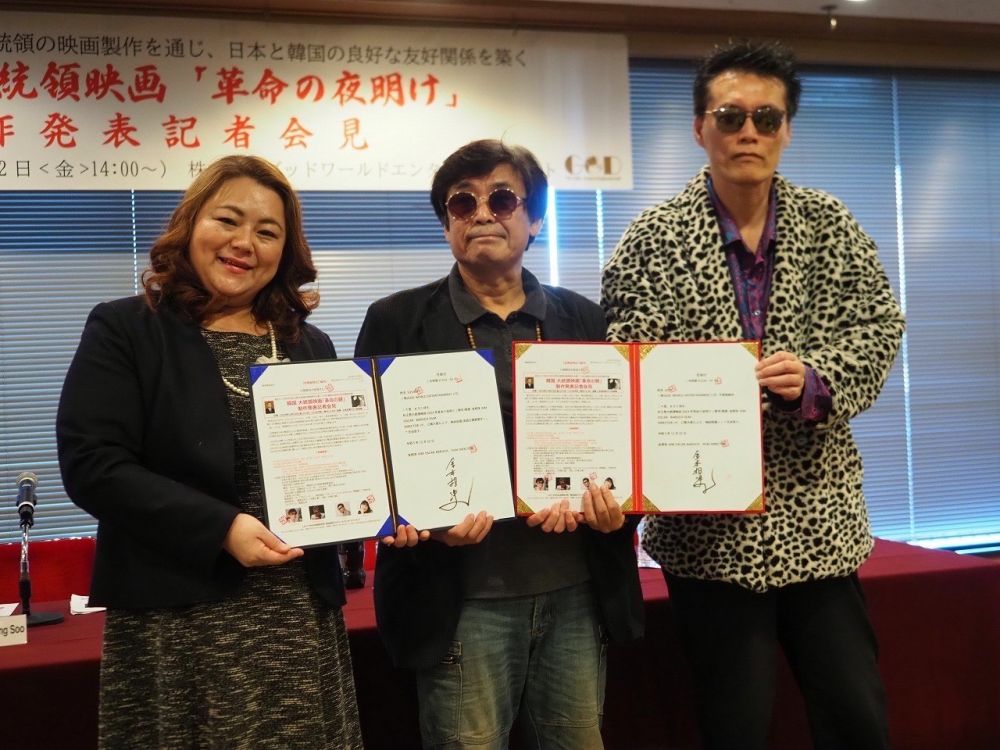
The film aims to mend the strained relationship between Japan and South Korea, fostering a positive friendship between the two nations. Excitingly, the theme song for the film will be performed in English by SIZUKU. The cast will include both Korean and Japanese actors. GOD received a letter of appointment as a public relations ambassador and actor and SIZUKU received a letter of appointment as a public relations ambassador, actor and English theme song singer from the director Kim Sang Soo.
Thanks to her unique voice, featuring theta waves, known for their potential to enhance the listener’s immunity, and gamma waves, which can elevate motivation, we believe that SIZUKU’s rendition of the theme song will contribute to the development of a stronger and more amicable relationship between Japan and Korea.

